For service-based companies, a huge chunk of time is dedicated to collaborating with clients.
Especially for marketing agencies, giving updates, and creating reports for clients can take time off from completing other tasks.
But the good news is: there are many effective tools available that your agency can use to create better and more comprehensive reports for your clients without spending too much time making them.
Efficient tools equal higher productivity for employees, better experiences for customers, and satisfactory relationships with clients. But with all the options out there in the market, choosing the best reporting tool can be a daunting and challenging task.
So to make things easier for you, we’ll explore seven different tools that will help you create better client reports while saving time and boosting productivity.
Table of Contents:
- Customer Relationship Management (CRM)
- Project Management
- Social Listening
- SEO Performance
- Data Analytics
- Reputation Management
- Accounting
Customer Relationship Management (CRM)
Sustaining customer and client relationships is the number one priority for most agencies.
It most likely is the main goal for yours. CRM software is an important tool to utilize for managing clients. The goal of CRM tools can be summed up as this: improve business relationships to grow your business.
Your agency can use the best CRM software to manage clients. CRM is essentially a database for monitoring important information like account details, start dates of contracts ,or when certain client reports are due, and many more.
As creating reports is often very administrative, failing to include details and other important information on the report may arise. Using CRM tools allows you to consolidate all information about customers and gain insights about possible leads. You will also be able to know how to optimize existing clients and build better relationships.
Some popular CRM tools on the market are Salesforce, Hubspot, ActiveCampaign, Pipedrive, and Zoho. These tools particularly make it easy to track client activity with your agency, such as how long you’ve been working together and the campaigns you may have worked on.
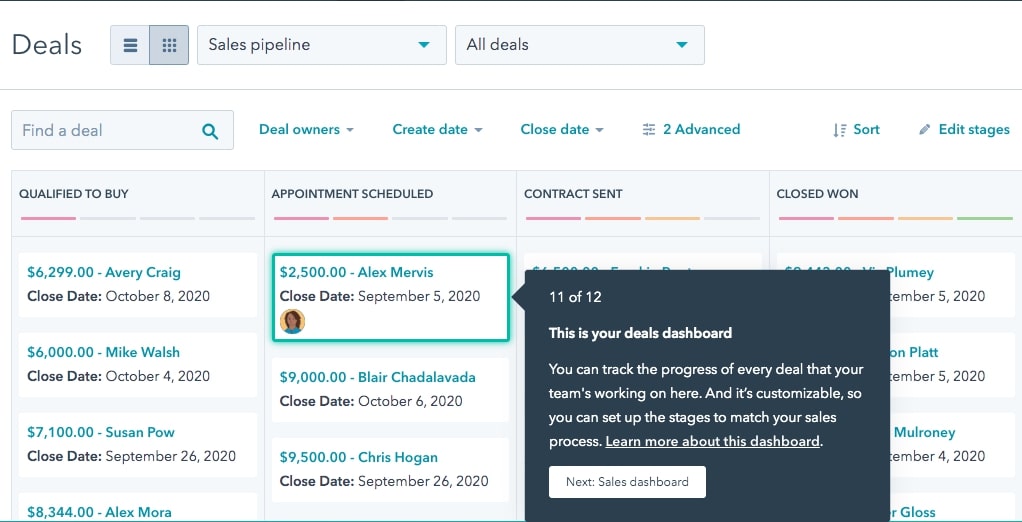
Factors to consider when choosing a CRM
Choosing the right CRM for your business requires thoughtful and deliberate decision-making. To make it easier for you, here are the top considerations you should make when weighing between different CRM software.
- Offers seamless accessibility on the cloud, ideal for team use
- Gives clear structure, but can be easily customized to suit your specific needs and use cases
- Offers benefits for not just your sales team, but also for your marketing team, customer support staff, and accounts department
- Scalability — you want a CRM that grows with your business instead of that one that forces you to switch providers when you get more accounts
- Easy to learn and use, especially when onboarding new team members
- Integrates with several tools in your existing marketing stack, or can be integrated via Zapier or Automate.io.
Project Management
Project management tools help you organize pending or in progress tasks, easily coordinate and collaborate with your team remotely, and help you build good habits at an individual level.
The best project management tools are those that make your team more productive in the long run. They provide you with features like reminders and notifications, assigned to tagging, due dates, status of the tasks, and prioritization features.
Some popular examples are Asana, Monday, Airtable, Wrike, Basecamp, Milanote and Trello. These apps allow you to organize any action items more efficiently, giving your team a chance to easily collaborate and view the progress of your client’s campaigns.
Later on, you can use these tools to help you build out your client reports, while all your team members can help build out your reports faster with less back-and-forth.
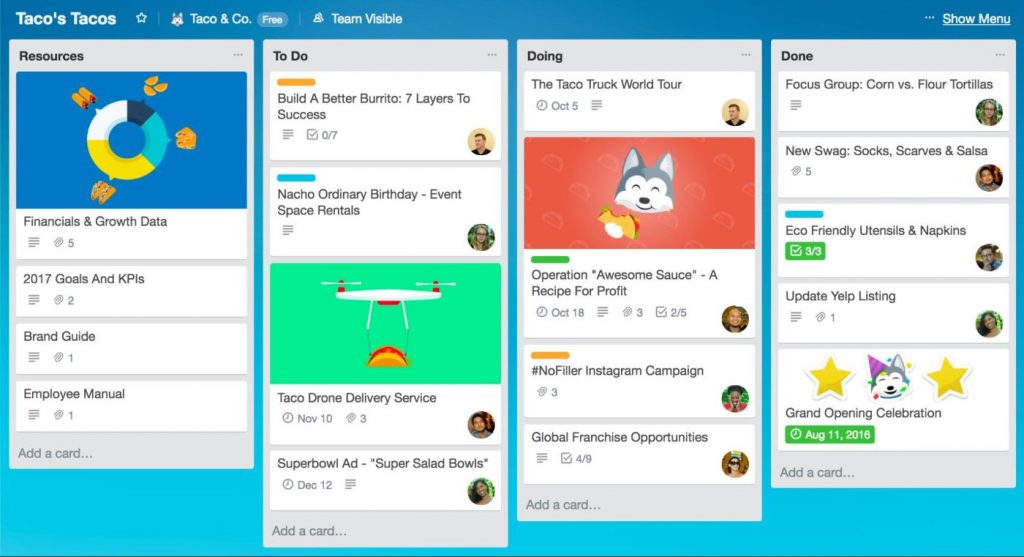
Factors to consider when choosing a project management tool
There are countless project management tools available for teams of every size. So when choosing one that you want your team to stick to, consider the following:
- Compatibility with your team’s work style — some teams may work best using the Kanban method, while other teams prefer seeing a timeline or Gantt chart.
- Allows for easy file sharing and collaboration
- Helps you see overviews of projects at a glance but also allowing you to view details about each step or process
- Integrates with your chosen communication tools (e.g. email, Slack, etc.)
- Has features that are optimized to save your team time (e.g. adding tags or labels, sending tasks via email, etc.).
Social Listening
Social listening is a big part of delivering great customer experiences between your agency and your client. If clients want to know what consumers are saying about them online, you can easily monitor the kind of things that are being said about them – or their competition – on social media.
Track comments from clients or customers for mentions or conversations about your brand on social listening apps. Your agency should consider this to be one of the most helpful tools to use for monitoring your clients’ audiences, identifying strengths, and areas for improvement.
Without social listening, you and your clients can be left in the dark about certain “blindspots” in their products or services that you are both unaware of. It’s not eavesdropping but listening to insights that are proven beneficial for your clients and to your agency in the long-run.
But more than informing your clients about what people are saying about them or other players in their niche, your agency benefits just as much. Using the data and insights you collect using social listening, you’re able to use these to inform your next proposals or campaign pitches to clients.
Notably, Mention is a social listening tool that helps you monitor conversations across millions of platforms. Understand the positive and negative trends about the brands you manage online and gain insight to amplify your presence. With the easy client reporting tools that Mention offers, you can deliver these social listening reports to clients in seconds.
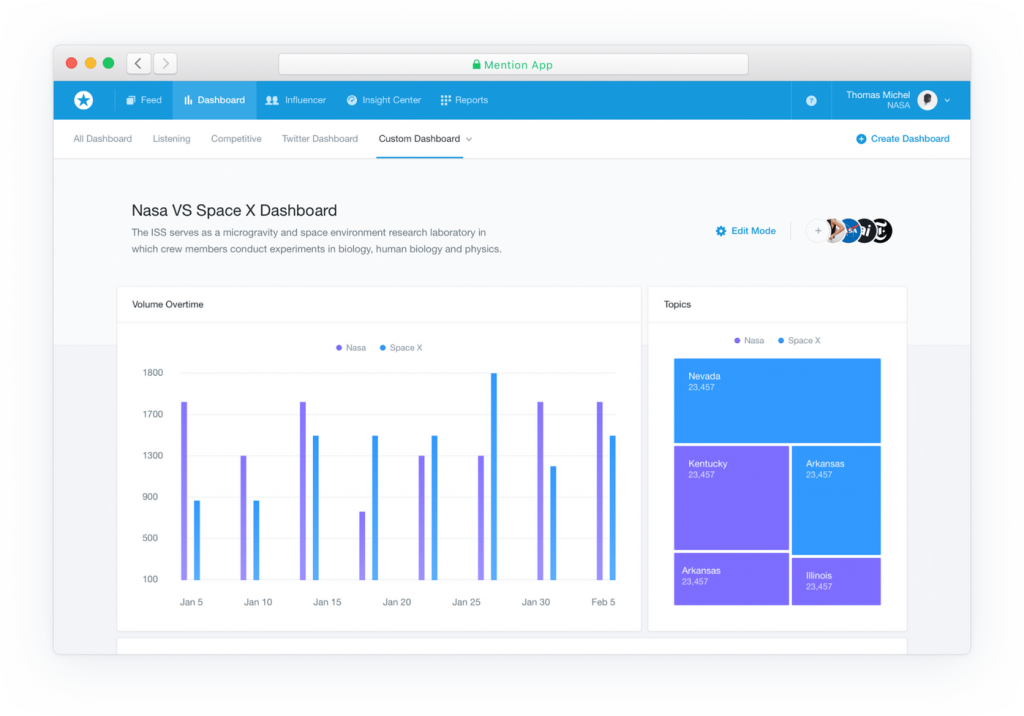
Factors to consider when choosing a social listening tool
Not all social listening tools are created equal. The right tool has all the features you need to monitor your clients’ brands while helping you create deep insights to drive campaigns forward. Here are features you should look for in your social listening tool of choice:
- Makes tracking brand mentions and comments simple and at-a-glance
- Allows you to organize and sift through social mentions with powerful filtering options
- Contains comprehensive analytics features to present and analyze social conversations
- Allows your team to see and understand trends at a glance with data visualization
- Features seamless process for creating automated or manually-generated reports
- Lets you manage social media posts for scheduling and posting, aside from brand monitoring.
SEO Performance
With an SEO analyzer, you are able to get a glimpse on how you can deliver better SEO campaign results and make it easier for clients and leads to understand too. This way, you can actively show clients how your services are helping their organic reach and have the metrics and analytics to prove it.
There are free and fee-based SEO tools your agency can subscribe to online, like SEMRush, Ahrefs, WooRank, SEO Site Checkup, Neil Patel SEO Analyzer.
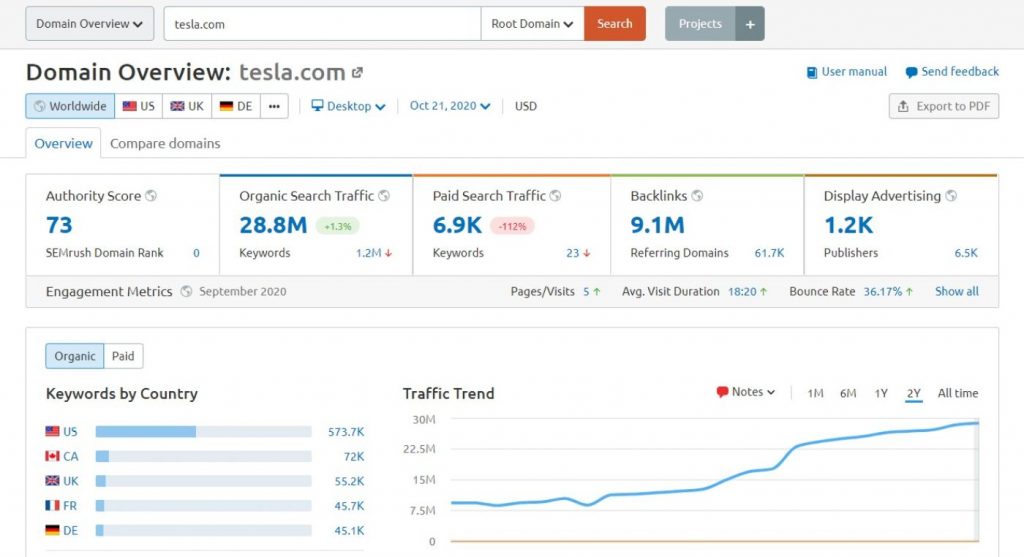
With these tools, you can easily retrieve reports on site speed, areas doing well in or where you can do better, as well as audit reports for clients.
Integrate these into your client reports with easy-to-read charts and summaries that you can access right from these SEO tools.
Factors to consider when choosing an SEO tool
SEO campaigns are a delicate balance between optimizing for real live users and the search engines in which these users engage with almost daily. Because of that, you want the right SEO tool to help you create better campaigns. Check out some things to consider when choosing your SEO performance software:
- Has features that reflect the most up-to-date search engine optimization ranking factors — as algorithms evolve, it’s important to choose an SEO tool that evolves with the updates and changes, so you’re getting the best recommendations and feedback
- Can provide detailed analysis and recommendations for improving SEO
- Simplifies SEO reports with easy-to-generate charts and graphs, both for your agency and your clients.
Data Analytics
Being able to analyze and interpret data analytics can be essential for your marketing agency to show clients how their campaigns have been performing. This data can also show your clients their ROI and how these campaigns have boosted their bottom line.
Not everyone pays attention to data and data analytics – but this is just what your clients are looking for, especially when working with your agency. In a 2020 BrainStation Digital Skills Survey, 89% of respondents claimed the lack of data literacy impacted the success of projects, and 59% of respondents believe their organization can be more successful with a better understanding of data analytics.
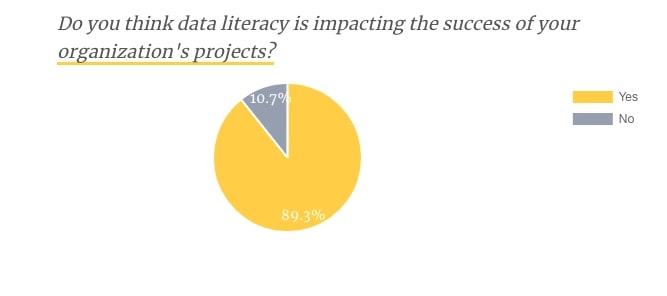
Data literacy also paves the way for creating client reports that are easy to read and understand. This boosts overall client experiences when working with your agency, which can lead to a more successful relationship with clients over time.
Some popular data analytics tools for marketers include Google Analytics, Amplitude, Mixpanel, Matomo Analytics, Adobe Analytics.
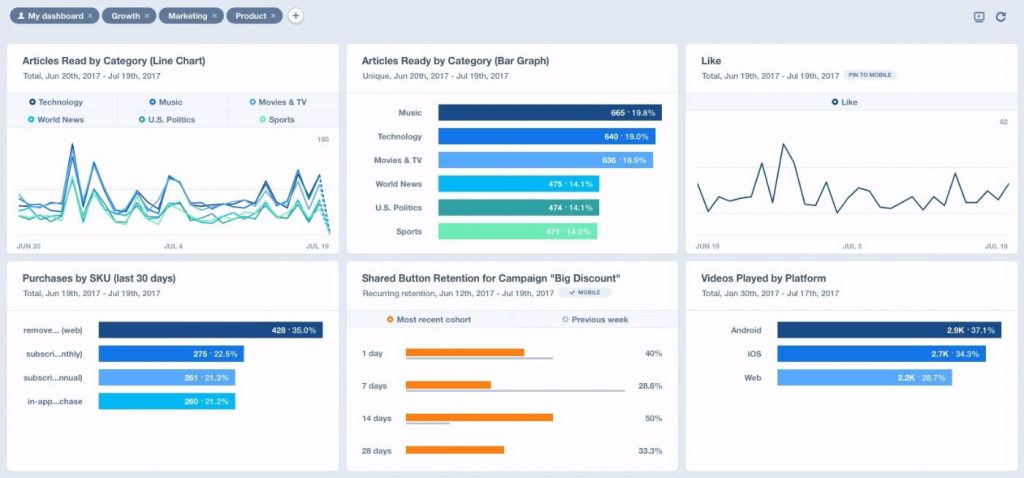
Factors to consider when choosing data analytics tools
Data analytics can refer to a broad range of tools, from website traffic analytics down to paid advertising analytics. These are some of the most important factors you’ll want to consider when making the choice for a data analytics tool for your agency:
- Integrates with a broad spectrum of niche data-gathering tools and other analytics providers
- Creates easy-to-read dashboards that report important trends at a glance
- Has robust organization features to filter or group data and insights
- Makes it easier for your team to read and glean insights from data gathered.
Reputation Management
Aside from using social listening tools, you can monitor your clients’ (and even your agency’s) reputation online with reputation management software. Reputation management tools give you an overview of general information like positive or negative ratings, where mentions are coming from, and who is talking about the brands you manage.
Actively know what to do about what people are saying about you. Reputation for every company is vital in affecting current and future performance. Monitoring your reputation can help you make sound marketing decisions – by knowing what to alter and change. Plan and improve internal work strategies to build a more seamless reputation for your brand. Options for reputation management software available in the market include Buzzsumo, Google Alerts, and Mention.
Factors to consider when choosing a reputation management tool
Your choice of reputation management can vary depending on your business needs. Here are things that may help you find the best tool for you:
- Lets users leave reviews or testimonials from different channels (SMS, email, survey forms, website forms, etc.)
- Lets you organize and filter comments and feedback from users
- Allows you to easily grab reviews for compilation into reports or for display on your channels
- Includes ways to access customer information — so if a customer leaves a negative review of your clients’ brand, you can reach out to repair the experience with ease.
Accounting
Accounting and marketing departments should go together like bread and butter. Since a big portion of an agency’s budget is for marketing tools and campaigns, it’s important to know where the budget is being allocated.
Having an accounting tool can help you efficiently understand where everything belongs. There’s no need to stress about computations, you can easily input data like invoices, expenses, income, and produce reports quickly for your client. Some popular choices are accounting apps like Wave, QuickBooks, FreshBooks, Xero, and Sage.
These can save your team time from learning how to balance accounting processes. Not only can you easily organize all expenses by connecting your bank accounts, sync your payments, and compute for tax but you can also monitor where your allocated campaign budget for clients is going.
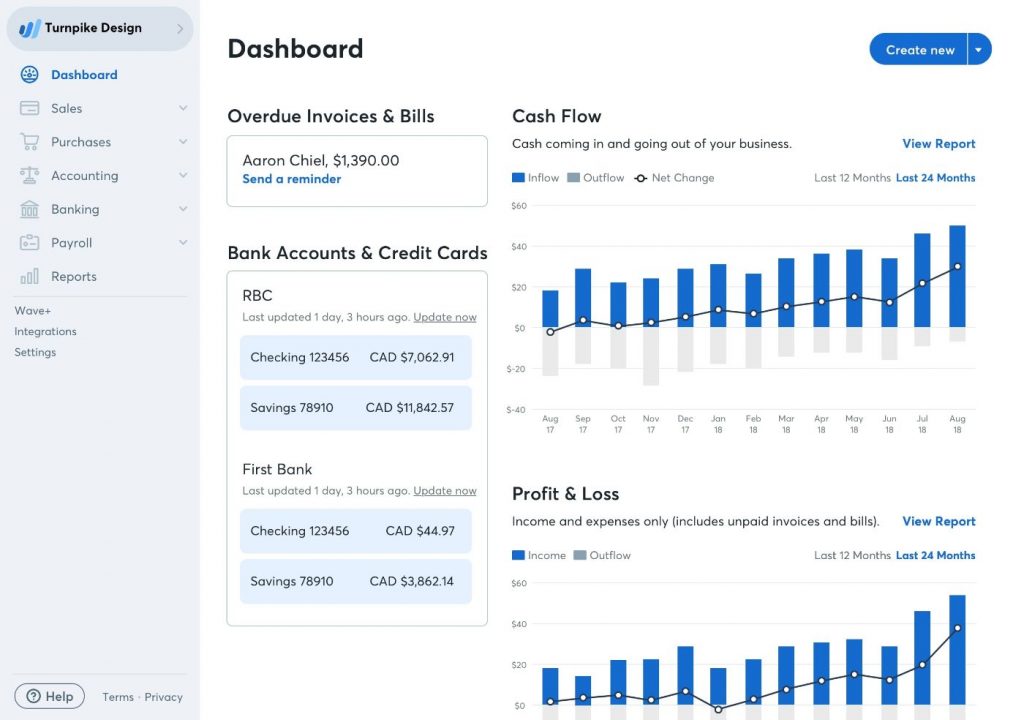
Factors to consider when choosing an accounting tool
When dealing with client budgets, you want a tool that helps you monitor where every cent is going. Remember these things when looking for the best accounting tool for your agency:
- Supports basic bookkeeping and accounting process for accurate reporting
- Includes invoicing options to easily collect payments from clients after sharing their campaign expenses and reports
- Includes features that help you stay on top of taxes
- Gives receipt tracking tools to safely store and manage physical receipts
- Cloud-friendly for teams of all sizes.
Key Takeaways
There are many tools available to help your business optimize team productivity and time management, so you can focus on the work that really moves the needle. Improve any inefficiencies in administrative work – like creating reports – to ensure seamless collaboration with clients and create better relationships in the long run. And be sure to use the apps listed in this article to help you do just that.






